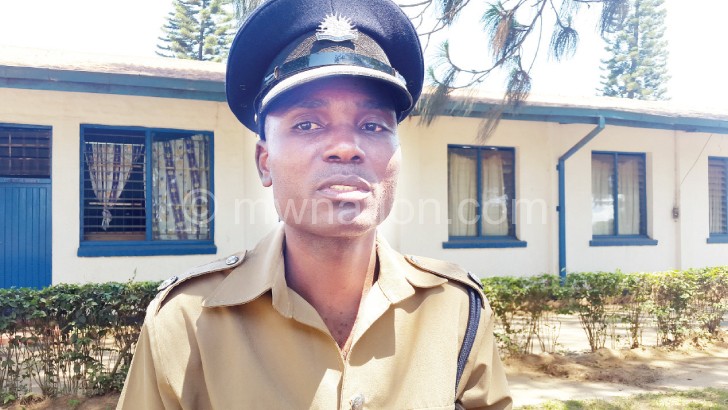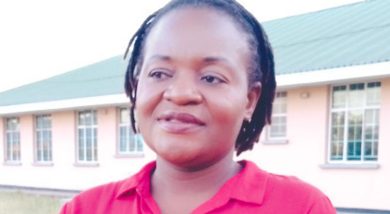Porous borders frustrate Covid-19 fight
Despite an allocation of millions of kwacha to intensify border checks to prevent imported Covid-19 cases, they remain ill-equipped to handle the impending third wave.
The situation is contrary to provisions in the National Covid-19 Preparedness and Response Plan launched in April 2020 which made equipping all ports of entry with necessary kits to manage the pandemic a priority.
During visits to some of the border posts, The Nation witnessed people passing through borders without basic screening for the virus, which includes body temperature checks.
Those getting into the country were also not asked to present Covid-19 test certificates.

On paper, law enforcement agencies were expected to secure the borders, but the reality on the ground is that people from neighbouring countries are moving in freely both through formal and uncharted routes.
The challenges prevail against a background of huge allocation of funds towards managing Covid-19.
From the controversial K6.2 billion Covid-19 response budget, Malawi Police Service received K100 million, but used K72 million reportedly for enhancing prevention of the spread through procurement and distribution of personal protective equipment (PPE) and operations to safeguard the country’s borders.
Malawi has 10 official ports of entry, including Kamuzu International and Chileka International airports. The ports of entry were identified as potential threats to the spread of the pandemic.
The Nation made spot-checks at various border posts such as Marka in Nsanje, Chiponde in Mangochi, Dedza, Mwami in Mchinji, Songwe in Karonga and Mbilima in Chitipa.
During the visits, residents and police/immigration officers confirmed that it was business as usual with no special policing operations conducted.
There were no Covid-19 test centres in sight. However, screening facilities, notably for body temperature were seen. On the other hand, generally there was no sanitiser, but at least buckets of water and soap for hand washing were available.
In Chitipa, motorcycle taxi operators who transport people to Tanzania’s Tunduma Border through Zambia, said they have never seen police officers on patrol. They said their business has never been disrupted.
“We do this business every day and we have never been bothered by police since Covid-19 started. We have usually crossed the border using both uncharted routes and formal routes without trouble,” said one operator at their station near Chitipa Main Market.
A visit to Mbilima and Kanyala border in Chitipa showed us people moving from the Zambian side to Malawi and vice-versa freely. Our team followed suit and crossed into Zambia without any questions and happily took selfies with the help of immigration officers.
It was the same situation in Mchinji where people seemed free to move across the border in full view of immigration officers. For those who used the formal route, they were merely screened, at least when they chanced upon a willing officer.
In Mangochi, patrols were done once or twice, recalled a few officers speaking on condition of anonymity, but not anymore.
There, our team also managed to cross into Mozambique without anyone demanding to see a Covid-19 certificate.
There is a tent supposedly to be used for testing and act as isolation centre at the border in Mangochi, but during our visit there was no health personnel conducting the testing. There was also no equipment inside the tent.
In an interview this week, National Police spokesperson James Kadadzera said he could not immediately comment on our findings.
“Let me contact officers from border police to learn more from them on how they are implementing Covid-19 operations,” he said.
Ministry of Homeland Security Principal Secretary Kennedy Nkhoma, whose ministry heads the security cluster in the National Covid-19 Response, said they will deploy officers to investigate the situation on the ground.
He said: “We will have to go to the sites to see if that is indeed how it’s being done. We had trust in police, immigration and health officials implementing the measures on the ground.”
In the National Covid-19 Response Plan, government indicated that it will equip all ports of entry with quarantine/isolation and testing centres.
However, it is only Kamuzu International Airport that has a holding room and quarantine facilities that need to be renovated.
This means the other nine needed these facilities, although tents have been provided in some cases as a short-term measure. The long-term measure, according to the plan, is to have established facilities considering that Covid-19 seems to be here for some time.
The plan also indicated that government would procure eight ambulances to be placed in eight ports of entry. However, this is yet to be done.
By press time yesterday, Ministry of Health spokesperson Joshua Malango had not yet responded to our questionnaire sent two weeks ago.
For Malawi to implement the National Covid-19 Preparedness and Response Plan it needed about K169 billion, but from what we have tracked, between April and December 2020, the country raised over K300 billion from donors.
The International Monetary Fund (IMF) pumped in K153 billion, United Nations agencies put in K43 billion, the European Union gave K38 billion, the African Development Bank poured in K37 billion and the World Bank issued K30 billion.
In April last year, government committed to the IMF to make available monthly expenditure reports and conduct quarterly audits on all Covid-19 funds. To date, no single report has been made to explain how the funds have been used.
Locally, government disbursed the controversial K6.2 billion and K17.2 billion.





